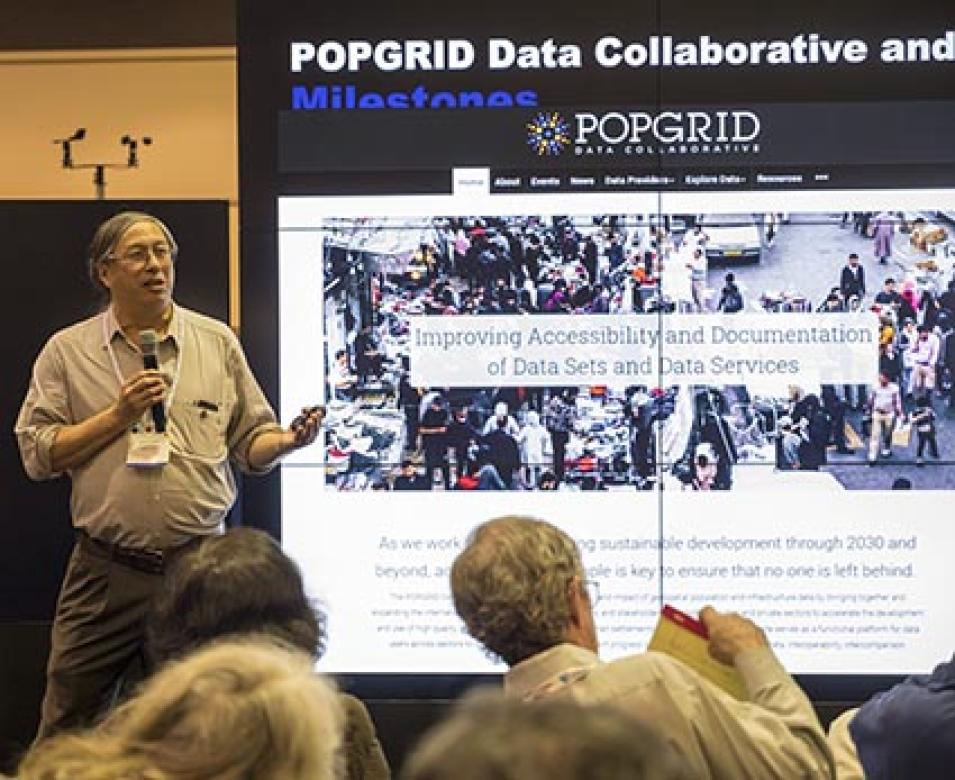Scientists, students, journalists, and others from around the world met February 13–16, 2020, in Seattle, Washington, for the annual meeting of the American Association for the Advancement of Science (AAAS), focusing on the theme, "Envisioning Tomorrow's Earth." The meeting addressed a broad range of topics about Earth's future, including tracks dealing with biomedical and health futures, digital futures, future Earth systems and climate, and urban futures.
As part of a session "Artificial Intelligence and Big Earth Data to Support Urban Sustainability," Robert Chen, director of Columbia University's Center for International Earth Science Information Network (CIESIN) and manager of NASA's Socioeconomic Data and Applications Center (SEDAC), gave a presentation on harmonized global gridded population data, highlighting how machine learning approaches applied to diverse new sources of remote sensing data are helping to transform our ability to map human settlements and urban development around the world. The session was moderated by Professor Kristie Ebi of the University of Washington and also included presentations by Daniele Ehrlich of the European Commission′s Joint Research Centre and Io Blair-Freese of the Bill & Melinda Gates Foundation.
Chen also gave a talk titled "Our Human Planet: Mapping Population and Infrastructure Today and Tomorrow" at NASA's "Viewing the Earth from Space" Hyperwall in the meeting's exhibit hall.
